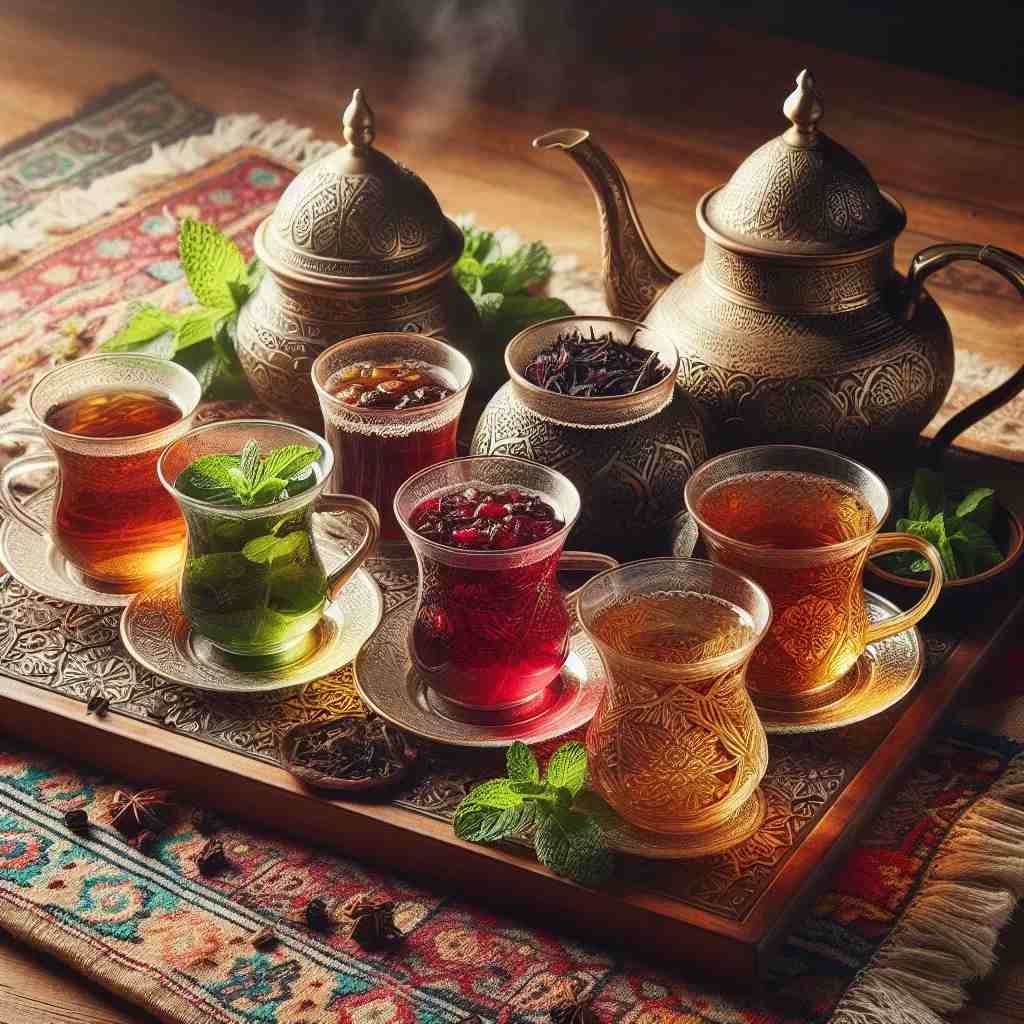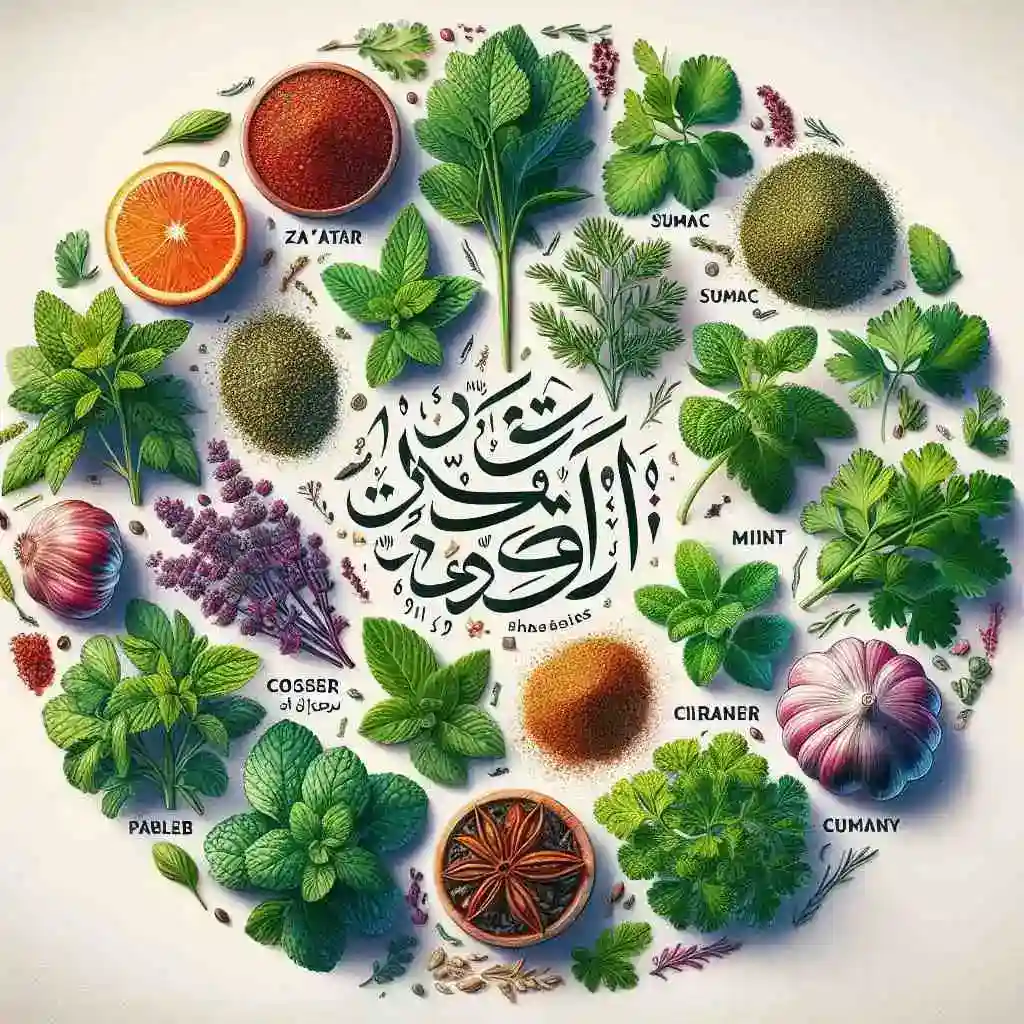Tea holds a cherished place in Arab culture, transcending mere beverage status to become an integral part of daily rituals and social fabric.
From the bustling cafes of Cairo to the serene courtyards of Marrakesh, the aroma of fragrant tea leaves wafts through the air, inviting locals and visitors alike to partake in a time-honored tradition that has been passed down through generations.
| English | Arabic |
|---|---|
| Black (Red) Tea | شاي أحمر |
| Mint Tea | شاي بالنعناع |
| Cardamom Tea | شاي بالهال |
| Chamomile Tea | شاي بالبابونج |
| Anise Tea | شاي باليانسون |
| Sage Tea | شاي بالمريمية |
| Thyme Tea | شاي بالزعتر |
| Green Tea | شاي أخضر |
Best 8 Types Of Arabic Tea
Black (Red) Tea: A Timeless Classic

Known as “شاي أحمر” (pronounced “shay ahmar”) in Arabic, black tea, or “red tea,” as it is often referred to, is a staple in many Arab households. This robust and full-bodied tea is frequently enjoyed with a generous amount of sugar, creating a delightfully sweet and invigorating beverage that accompanies conversations and moments of respite.
Black tea varieties, such as English Breakfast or Earl Grey, have found their way into Arab tea traditions, adding depth and complexity to the beloved beverage.
Mint Tea: A Refreshing Oasis
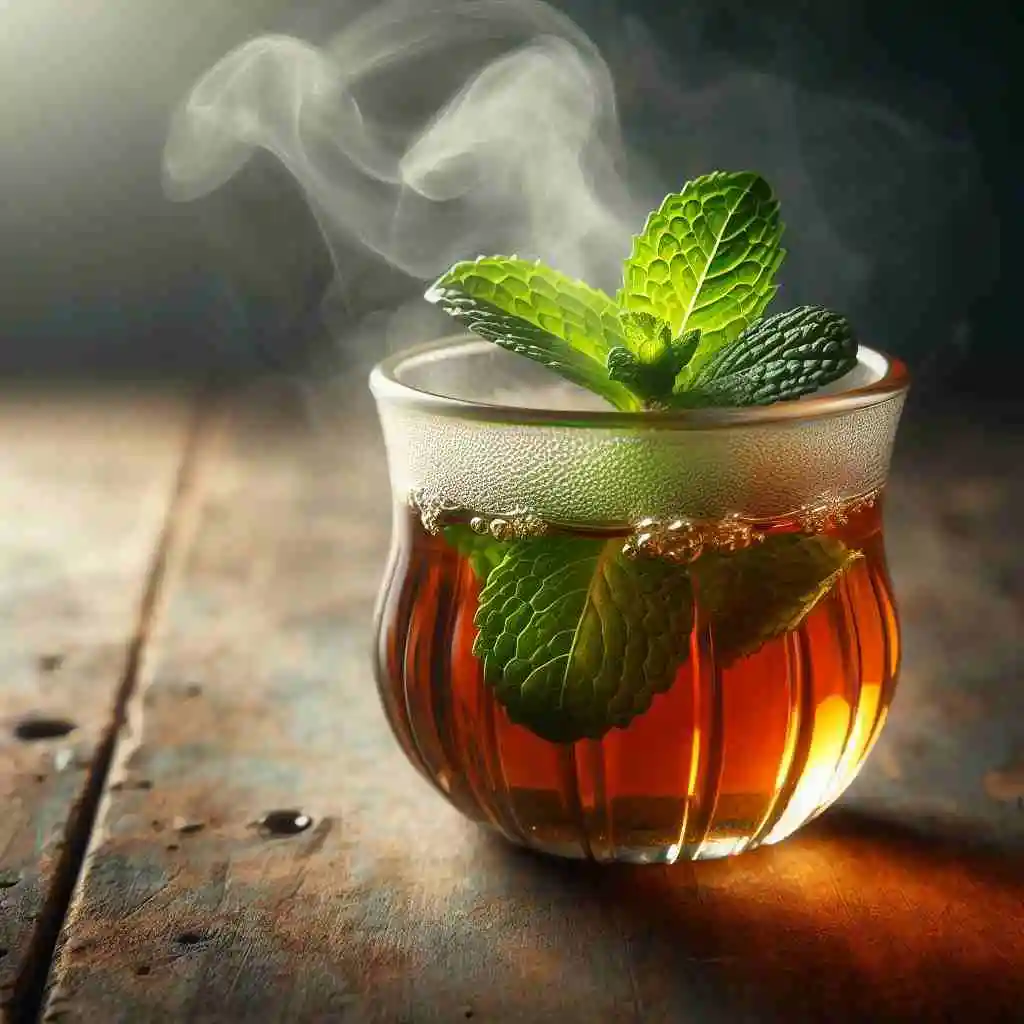
In the arid landscapes of the Middle East, where the scorching sun beats down relentlessly, mint tea, known as “شاي بالنعناع” (pronounced “shay bi-na’na'”), offers a refreshing respite. This vibrant and invigorating blend combines the richness of black tea with the cool, crisp notes of fresh mint, creating a harmonious symphony of flavors that awakens the senses.
Mint tea is particularly popular in countries like Morocco, where a variation known as “Maghrebi mint tea” is prepared using robust spearmint leaves, imparting a distinct and intense minty aroma.
Cardamom Tea: A Spicy Delight
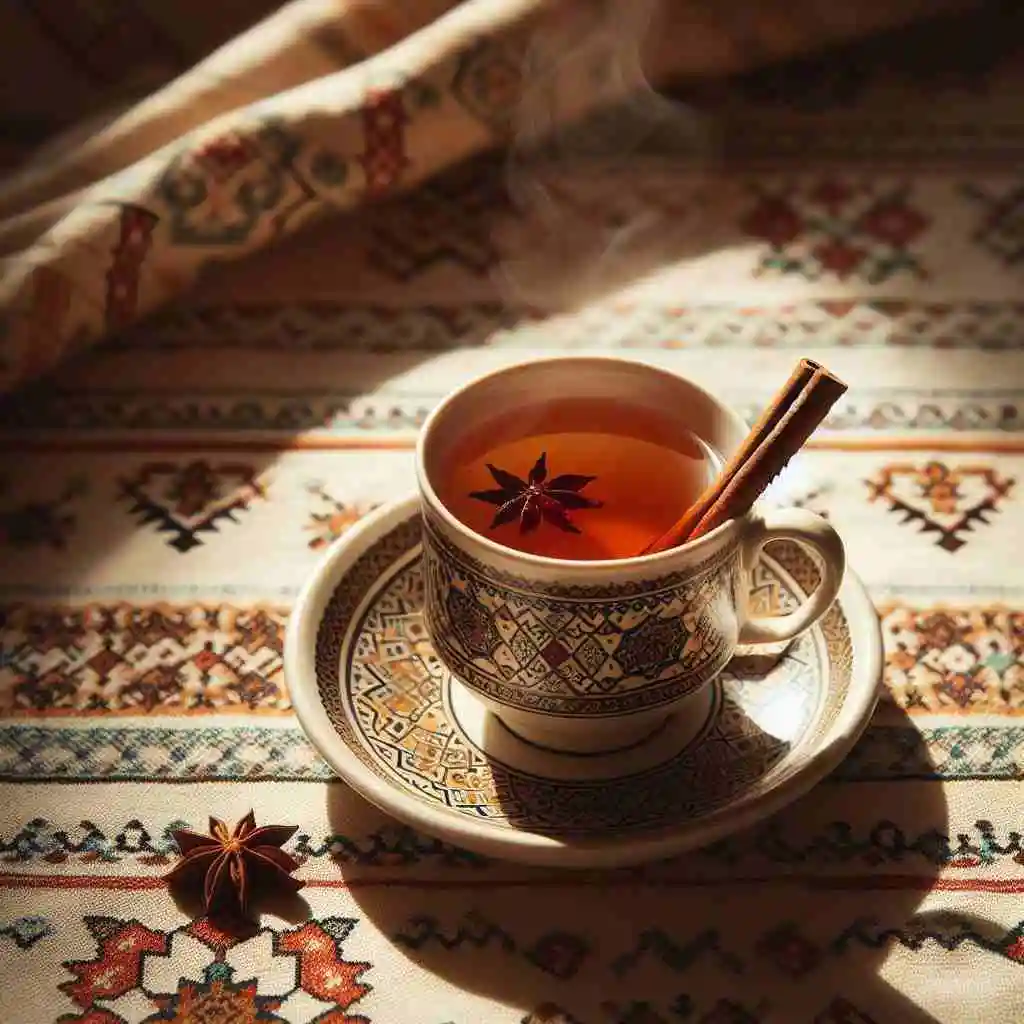
Cardamom, known as “هال” (pronounced “hal”) in Arabic, is a beloved spice that has found its way into many Arab culinary traditions, including tea. When infused into black tea, cardamom imparts a warm, spicy aroma and a distinctive flavor that lingers pleasantly on the palate.
Cardamom tea is not only a delightful indulgence but also boasts numerous health benefits, acting as a natural anti-inflammatory and aiding in digestion. Its unique flavor profile has made it a beloved choice among tea enthusiasts across the Arab world.
Chamomile Tea: A Soothing Embrace
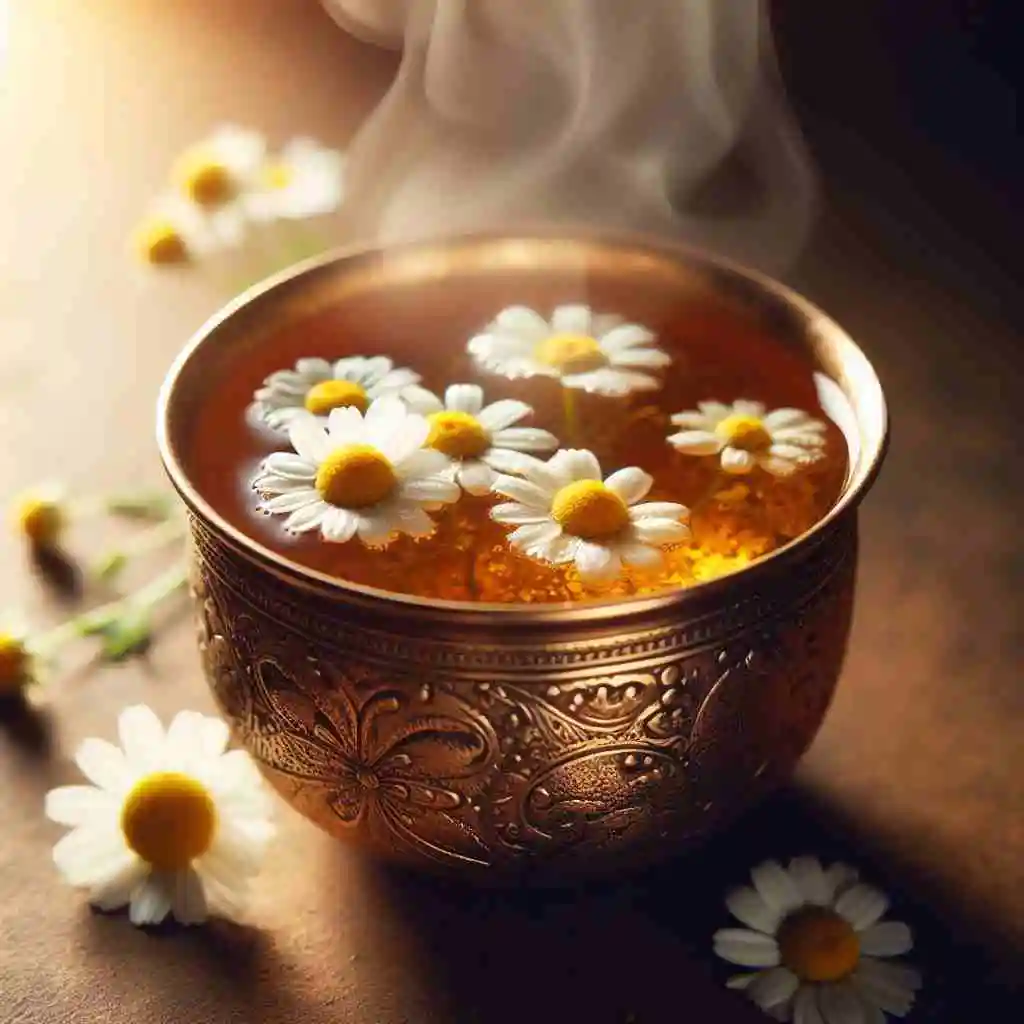
“بابونج” (pronounced “babunaj”), the Arabic word for chamomile, evokes a sense of tranquility and serenity. This gentle herbal infusion, made from the delicate chamomile flowers, has been embraced by Arab cultures for centuries as a natural remedy for promoting restful sleep and alleviating stress.
Chamomile tea’s calming properties make it a popular choice for winding down after a long day or as an accompaniment to quiet moments of reflection and contemplation.
Anise Tea: A Taste of Egyptian Heritage

Anise, known as “يانسون” (pronounced “yansun”) in Arabic, is a beloved herb that has been cultivated in Egypt for centuries. Its distinct licorice-like flavor and aroma have made it a staple ingredient in many Arab culinary traditions, including tea.
Anise tea, with its unique taste and numerous health benefits, has become a cherished part of Egyptian tea culture, offering a glimpse into the rich heritage and traditions of this ancient land.
Sage Tea: A Mediterranean Treasure
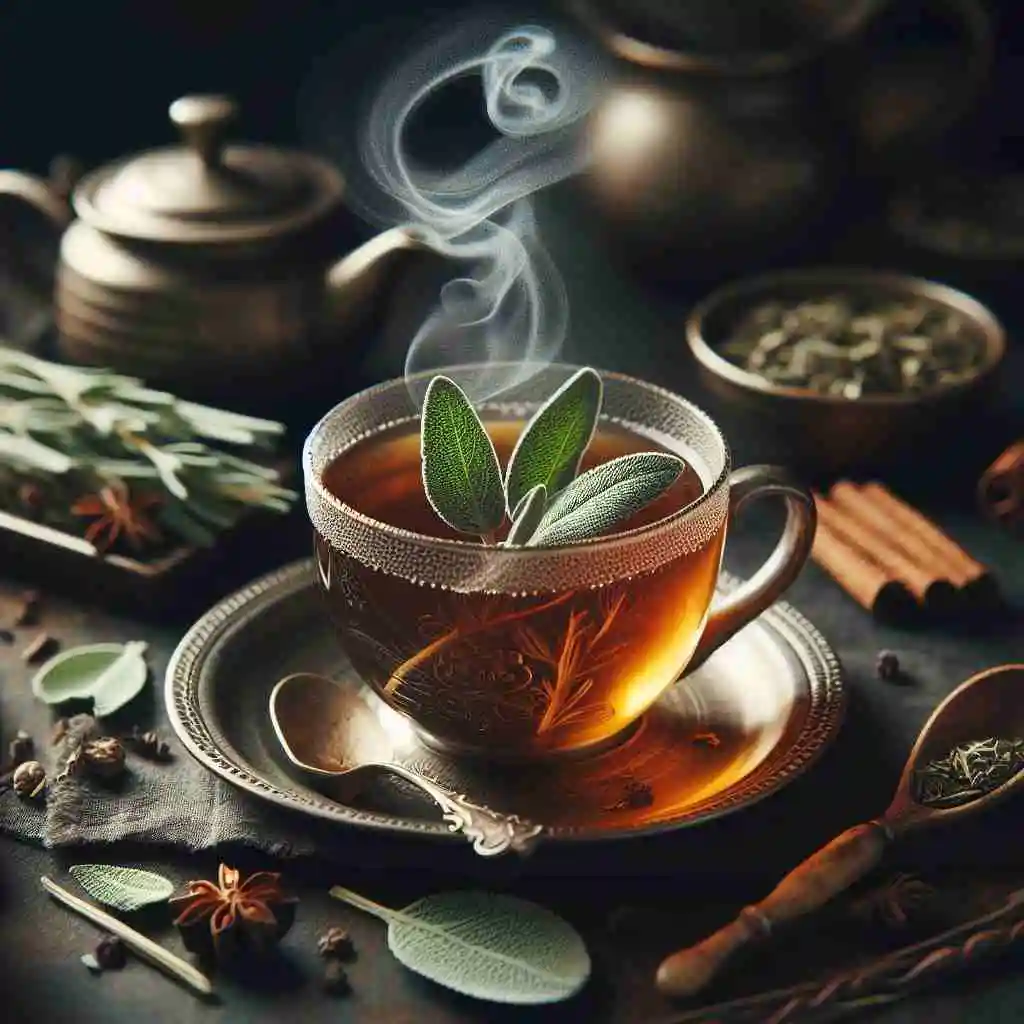
Sage, called “مريمية” (pronounced “maryamiya”) in Arabic, is a fragrant herb native to the Mediterranean region, where it has been revered for its medicinal properties and culinary versatility for centuries.
When infused into tea, sage imparts a distinct earthy aroma and a slightly bitter, yet refreshing taste. This herbal infusion is not only a delightful beverage but also a potent source of antioxidants, making it a popular choice among health-conscious individuals in the Arab world.
Thyme Tea: A Taste of Levantine Tradition
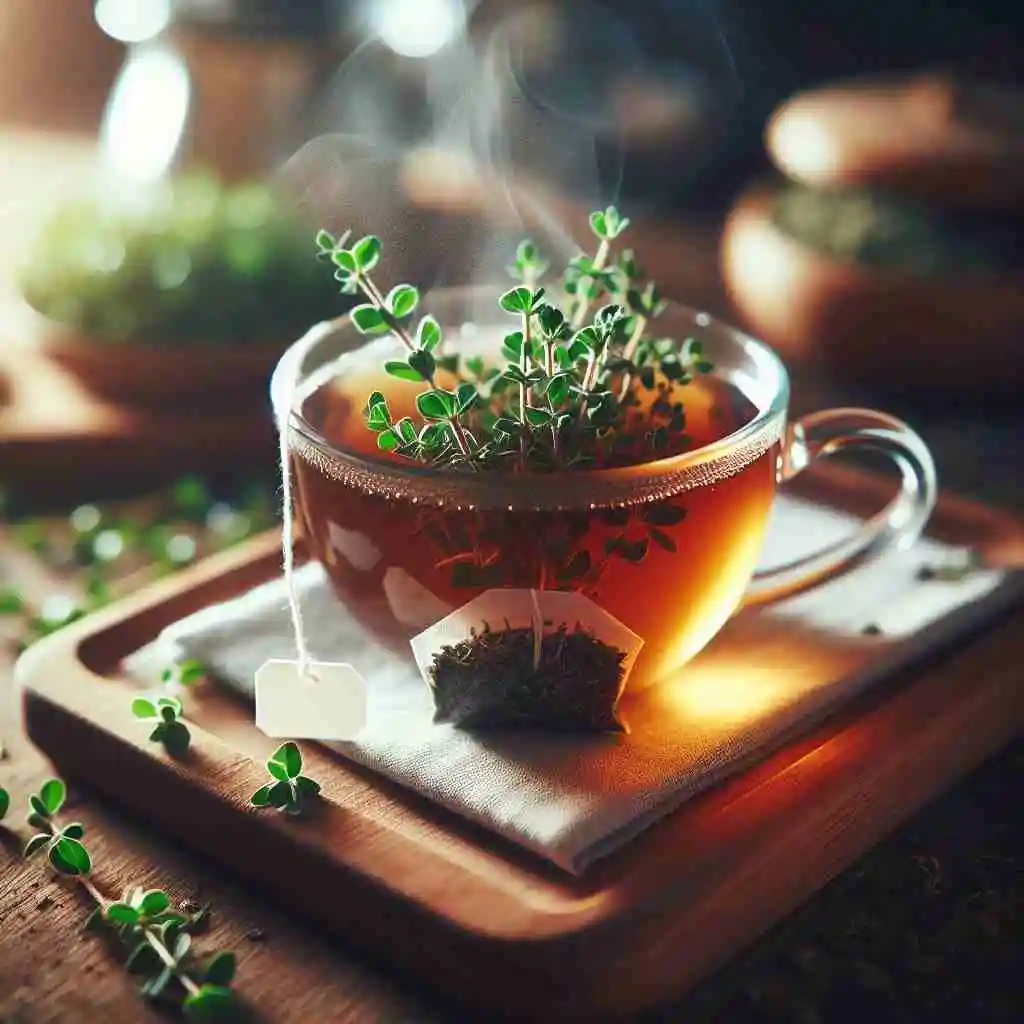
Thyme, known as “زعتر” (pronounced “z’atar”) in Arabic, is a beloved herb that has been woven into the culinary tapestry of the Levantine region, which includes countries like Syria, Lebanon, and Palestine.
Thyme tea, with its warm, herbaceous notes and subtle earthiness, has become a beloved tradition in these regions, offering a comforting and familiar taste that evokes memories of home and family gatherings.
Green Tea: A Refreshing Elixir

While not as deeply rooted in Arab tea traditions as some of the other varieties, green tea, or “شاي أخضر” (pronounced “shay akhdar”), has gained popularity in recent years due to its numerous health benefits and refreshing flavor profile.
Green tea’s delicate, grassy notes and subtle sweetness have found a place in Arab tea culture, appealing to those seeking a lighter and more invigorating beverage option.
Tea Preparation and Presentation in the Arab World
In the Arab world, tea-making is an art, with each region having its own special customs. From delicate glass cups to ornate tea sets, every detail carries cultural meaning.
Tea Pouring A Graceful Ritual
Pouring tea in Arab culture is like a dance, done with elegance and care. The aroma fills the air, creating a moment of connection and shared enjoyment.
Tea and Socializing A Time-Honored Tradition
In Arab culture, tea isn’t just a drink—it’s a way to bring people together. Whether in bustling cafes or peaceful courtyards, tea gatherings foster community and conversation, creating memorable experiences.
Arabic tea culture offers a diverse range of flavors and traditions that have been cherished for generations. From robust black tea to refreshing mint, each type holds unique significance in Arab society.
Whether you’re enjoying cardamom tea’s warmth or chamomile’s soothing qualities, tea goes beyond just a drink—it’s a symbol of hospitality and healing.
So, next time you sip a cup, remember the rich history and vibrant flavors of Arabic tea, shared and celebrated with every aromatic infusion.

